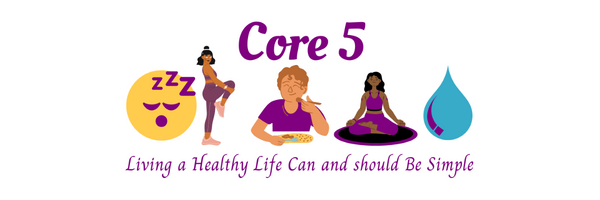Whether you’re a practicing health coach or are curious about how professionals help people achieve behavior change, this post is for you! There are lots of approaches and theories when it comes to helping people build healthier habits, many overlapping with each other. So, let’s answer the question: what is motivational interviewing (MI)?
Firstly, we know that telling people what to do doesn’t work
Pretend you’re on the fence about starting a new exercise habit of lifting weights for 10 minutes a day before work. When we’re ambivalent – have arguments both for and against change – it’s like having a committee of people in our heads, including a party for change and a party against change. When one party makes an argument one way, the other party has to step up and defend itself by making an argument of their own.
Now, say you come to a coach who wholeheartedly agrees with your “pro-change” party. With good intentions, the coach persuades you to pick up this new habit. Predictably, in your mind, your “against-change” committee then has to make an argument to make up for the imbalance. And we humans tend to trust our own thoughts/opinions more than those of others. This is why people get defensive when they’re told what to do, even by experts. Regardless of good intentions, persuading people to change can have the opposite effect than what we intend. This is normal and expected.
What is motivational interviewing – where it came from
Let’s go back to the 1970s to early 80s and talk about how addiction was treated then. MI came about as a method for helping people who struggled with addiction. Clinicians used to be authoritarian and confrontational, relying on directing people. In other words, siding heavily with the “pro-change” committee in people’s heads.
The basic approach was to provide the solution, and start forcing it whenever resistance was encountered. This would lead to clients getting defensive, which brought about an incorrect conclusion that they were immature, resistant, difficult, and in denial, when in reality it was the way the clinicians treated them that caused this response.
MI was developed once research started showing that this ‘directing’ style wasn’t effective (this is putting it mildly – it was often harmful) and that having clients voice their own arguments for change was. When clients started to voice their own arguments for change, these “pro-change” arguments became more convincing to them because they were hearing their own arguments, not those of others.
With this approach, including being accepting rather than looking at the issue as a problem that just needs the ‘proper’ solution to solve, it became apparent that struggling addicts weren’t any of the horrible things they often got labelled as. Clinicians began finding them to be open, interesting, thoughtful people with lots of self-awareness around what their addictions were doing to their lives, and who genuinely wanted to work to change.
MI is one approach among many
I think health coaching is too complex to describe simply, but one pretty good definition could be that we guide people to voice out loud their own arguments for change, and we try to elicit as much of this as possible. If we do this, it’s been observed that most people will go off and make positive change on their own.
Note also that coaching does not equal MI, MI is simply a style of conversation, one approach among many. I’m strongly not a fan of memorizing theories, approaches, or really anything for that matter. Humans and their individual situations are too unique to take one approach, even a very broad approach, every time. Besides, techniques like MI will be used often enough by professionals that they’ll memorize the basics just through consistent practice.
People need to use their own motivations and ideas
In practice, coaching isn’t about using this or that clever technique with a client and it’s certainly not about proving how much you know. I once took a coaching course where we’d practice coaching one another, each time being told to practice a specific skill or approach.
As a result, we spent our energy and got frustrated trying to manipulate the conversation to fit the assignment instead of actually focusing on what the person in front of us needed. As you may guess, after the course, the lot of us had to try to unlearn a lot of the concerns we gained by being forced into determining our approach without first listening to the person’s needs. This is a huge no-no.
Just like we students got discouraged by being told what to do, people will get discouraged if you don’t let them bring their own thoughts and ideas to the table. This is the real key behind helping someone make change for life.
Conclusion – What is Motivational Interviewing
What coaching is really about is being bravely in the moment with someone and providing some guidance and support as they strive for healthy change. If your purpose is to help someone make lifetime-lasting healthy change, evoke their personal motivations and ideas, even if you think that your ideas are better. Your ideas may be best for yourself, but they won’t be for others.
Though it’s compatible with other behavior change approaches, MI is simply a specific style of conversation with the primary purpose of strengthening motivation with a clear direction toward a specific goal. MI cannot be used to manufacture motivation in someone, only to find and expand on what is already there.
We live in a good time of evidence-based practices to coach people around making healthy change. In helping fields, professionals have a lot of influence on whether our clients tend to be closed and defensive, or open, sharing, and energized to make progress based on how we talk to and treat them.
